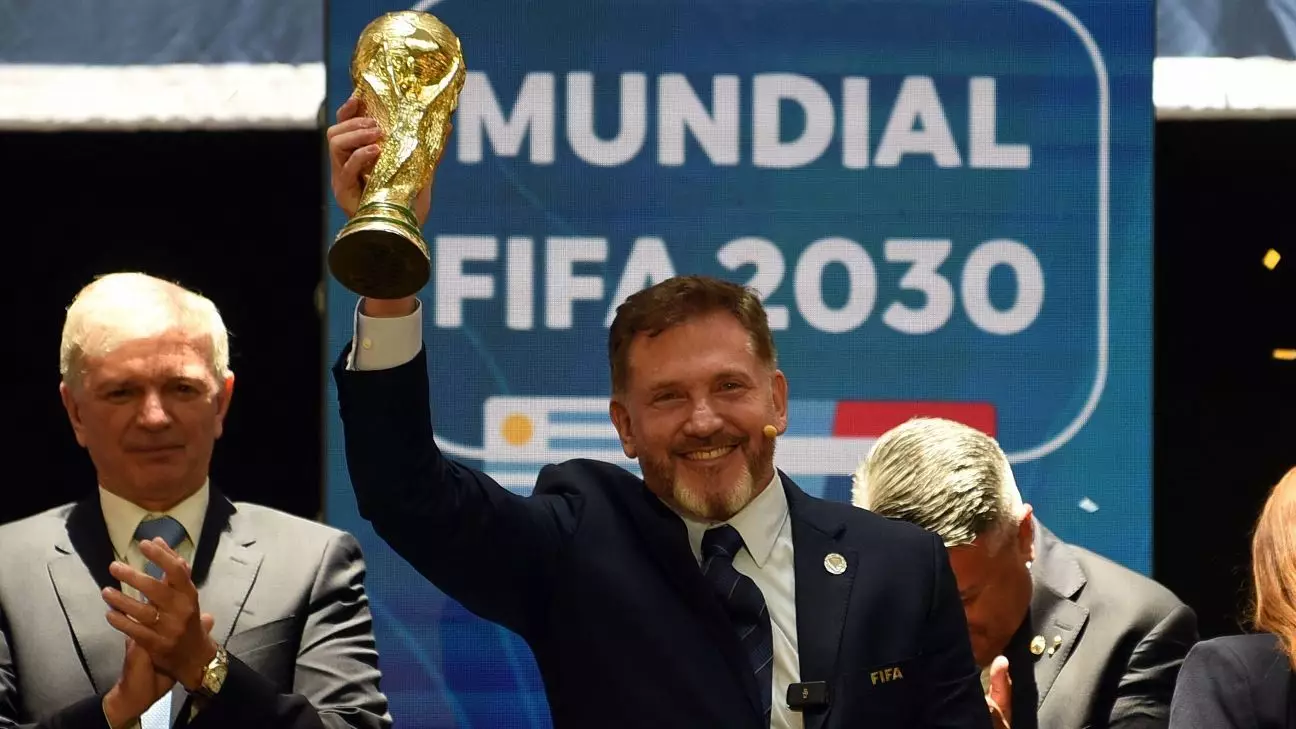The prospect of expanding the men’s World Cup to 64 teams by 2030 has ignited fervent discussions within the soccer community and beyond. Alejandro Domínguez, president of CONMEBOL, recently articulated this ambitious proposal, which aims to celebrate the centennial of the World Cup with unparalleled grandeur. Presenting this vision at CONMEBOL’s 80th Ordinary Congress, Domínguez highlighted the unique nature of an anniversary event and the potential to connect starlit soccer cultures across continents. His statement, underscoring the event as a “world experience” for nations long excluded from this pinnacle of sports, is not only a call to action but also a challenge to the inherent limitations of current FIFA regulations.
A Heritage of Togetherness
The proposal becomes richer when we consider the historical backdrop: Uruguay, the birthplace of the World Cup in 1930, serves as one of the six co-hosts for the upcoming event. The meaningful inclusion of countries like Paraguay, Argentina, Spain, Portugal, and Morocco alongside Uruguay symbolizes a significant evolution in how we view sports as a tool for unity. By entertaining the option of a 64-team tournament, the world’s most popular sport may finally provide equal representation and opportunity to nations like Venezuela, which has yet to qualify. It emphasizes a departure from elite selectivity towards a more inclusive celebration of global talent.
Expanding to 64 teams would inevitably result in a staggering 128 matches—the very idea of which elicits excitement but also concern. While the notion of doubling the matches undoubtedly attracts attention, it’s essential to ponder the implications this format may have on fans, teams, and the sanctity of the competition itself.
Quality Over Quantity: A Chef’s Dilemma
Critics, including UEFA president Aleksander Čeferin, have voiced reasonable reservations regarding the impact of such a change on the sport’s integrity. The fear of diluting the quality of play is valid; with more slots available, the possibility of witnessing mismatches between established football giants and less competitive nations looms larger. There’s a palpable concern that the expansion might prioritize spectacle over a meaningful contest, which has historically defined the World Cup.
Furthermore, devaluing the qualifying rounds could undermine years of effort put in by nations striving to earn a place on the world stage through skill and determination. A World Cup, after all, should reflect the highest caliber of talent, and the pressure to maintain a level playing field becomes exponentially more challenging as more teams enter the fray.
Embracing Change with Caution
While Domínguez envisions a grander stage for international football, it is crucial that stakeholders approach this vision with judicious foresight. The excitement surrounding a wider platform for participation must be tempered with a commitment to preserving the competitive essence of the World Cup. This transformation could either elevate soccer’s inclusivity or risk marring the emotional and historical significance of the tournament.
The road ahead remains uncertain, but what is clear is this: change is upon us, and football as we know it faces exciting yet daunting challenges. With passionate debates on both sides, the countdown to a potential 64-team World Cup is as much about the future of soccer as it is about honoring its storied past.

